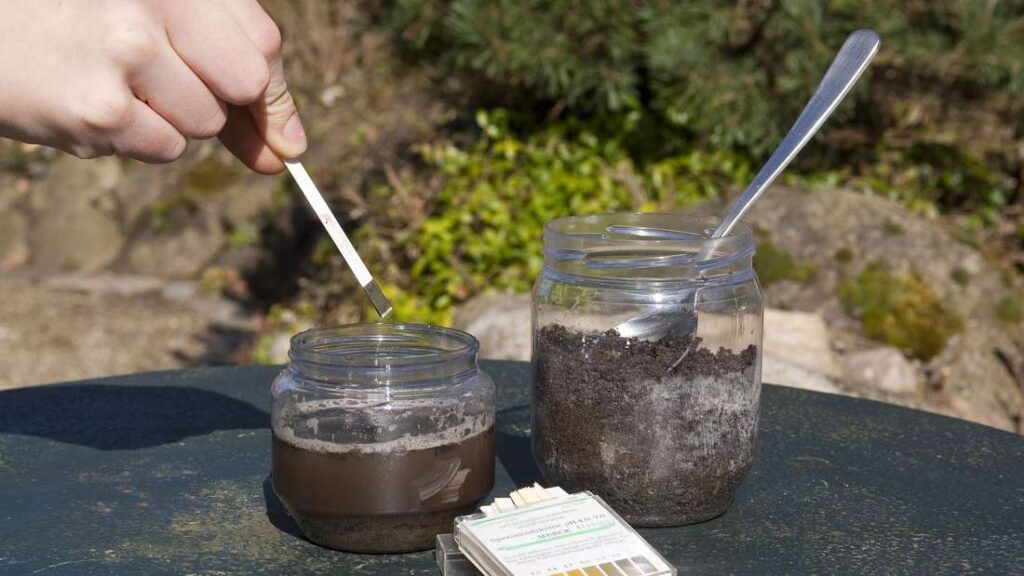If plants are stunted, it may be because the pH of the soil does not suit them. The value can be improved with compost or lime.
Petunias prefer a alkaline soil. You can measure the pH value of the soil to know which plants feel comfortable there. And with compost or lime accordingly improve the soil quality in the desired direction.
Petunias do not like acidic soil
Each plant has its own requirements for soil quality in order to grow vigorously and remain healthy. The right pH value enables the plants to optimally absorb the nutrients in the soil; if the value does not suit them, they will wither away. Most plants do well with a slightly acidic or neutral pH.
You can determine the pH yourself by dissolving some garden soil in water and sticking a pH test strip in it. It’s best to take soil samples at different locations in the garden to do this. If the pH is too low for the plant, i.e. the soil is too acidic, the soil needs lime or soda ash. If the pH is too high, you can mix peat into the soil. Since this is not very sustainable, compost made from oak leaves or bark mulch is a better alternative. Fertilizing with coffee grounds also acidifies the soil.
Plants feel comfortable in these pH ranges:
- pH 4.5 to 5 (more acidic): Azaleas, hydrangeas, blueberries, rhododendrons, ferns, arnica, heather, magnolias, etc.
- pH 6.5 to 7 (neutral): Lettuce, cucumbers, radishes, carrots, peppers, currants, dahlias, peonies, roses, and others.
- pH above 7 (neutral to alkaline): Plum, asparagus, geraniums, petunias, forget-me-nots, vetches, summer lilac, laburnum, and others.
Soil quality also has an important influence on the activity of soil organisms. One way to improve soil quality is to use effective microorganisms: they revitalize the garden soil and make it more fertile.


